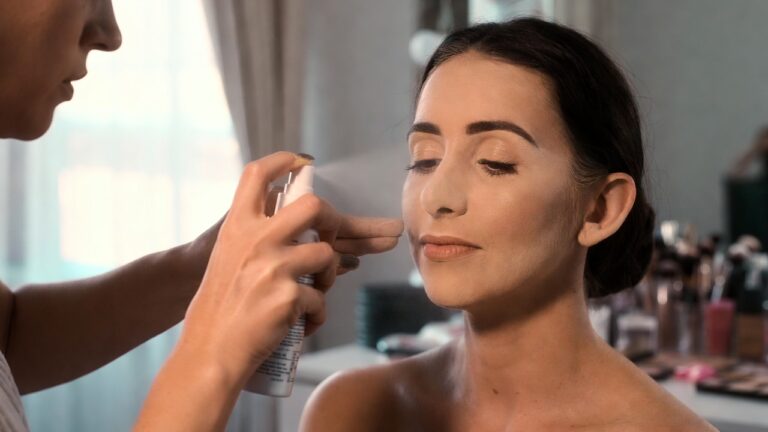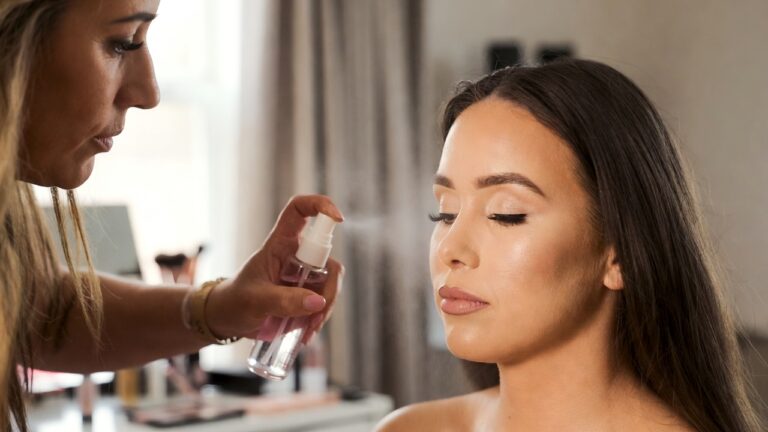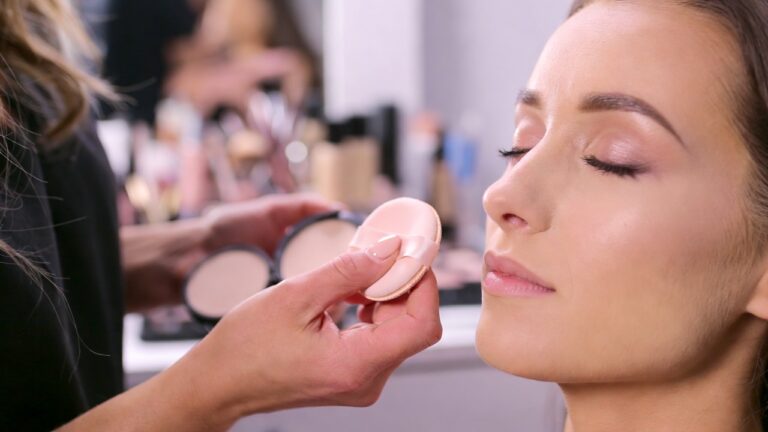Sensitive eyes can make eye makeup feel like a challenge. Irritation is a common issue for those with delicate eyes, from redness to itching. However, with the right techniques and products, you can enhance your eyes without causing discomfort. Here are essential makeup tips that are both eye-friendly and beautiful.
1. Choose Hypoallergenic and Fragrance-Free Products
When you have sensitive eyes, selecting the right makeup is crucial. Hypoallergenic and fragrance-free formulas are less likely to irritate.
- Mascara: Opt for mascaras that are specifically labeled for sensitive eyes. These typically avoid harsh chemicals and fragrances.
- Eyeshadow: Choose mineral-based eyeshadows, as they tend to be gentler on the eyes.
- Eyeliner: Cream or gel eyeliners are softer on the skin and less likely to irritate, unlike pencils that may pull at the skin.
Choosing makeup labeled “dermatologist-tested” or “for sensitive eyes” can minimize the risk of irritation.
2. Stick to Simple, Natural Looks
Sometimes, less is more, especially for sensitive eyes. Avoid layering multiple products that may lead to buildup or irritation.
- Minimal Layers: Use only a few products, such as simple mascara and light eyeshadow, to reduce the potential for irritation.
- Neutral Shades: Opt for neutral or earth-toned eyeshadows. These shades are less likely to contain irritating dyes or pigments.
- Avoid Glitter: Glittery eyeshadows may contain tiny particles that can cause discomfort or enter the eye, leading to irritation.
A natural, clean look is often the most comfortable and eye-friendly.
3. Use a Gentle Makeup Remover
Properly removing your eye makeup at the end of the day is vital to avoid irritation or dryness.
- Oil-Free Removers: Use an oil-free makeup remover designed for sensitive eyes. Micellar water is often a good choice, as it cleans without harsh chemicals.
- Cotton Pads: Avoid rubbing your eyes too harshly with a cotton pad. Gently press the pad against your eyelid and let it sit for a few seconds before wiping away.
- Avoid Fragrances: Fragrance in makeup removers can irritate sensitive eyes, so choose products without added fragrances or preservatives.
Gentle removal ensures your eyes stay free from irritation and inflammation.
4. Keep Brushes Clean
Dirty makeup brushes are a breeding ground for bacteria, which can easily transfer to the delicate eye area and cause irritation.
- Regular Cleaning: Clean your makeup brushes weekly with a gentle brush cleanser or mild soap and water.
- Opt for Synthetic Brushes: Synthetic bristles are softer and less likely to cause irritation compared to natural brushes, which can be rougher.
Using clean, soft brushes minimizes the risk of infection or irritation, ensuring a smoother makeup application.
5. Be Careful with Eyelash Extensions or False Lashes
Eyelash extensions or falsies can enhance your look but may cause irritation for sensitive eyes if not properly applied.
- Choose Hypoallergenic Lashes: If you’re opting for false lashes, choose options labeled hypoallergenic and made from synthetic fibers.
- Avoid Lash Glue with Harsh Chemicals: Some lash glues contain latex or other irritating chemicals. Look for latex-free and sensitive formulas.
- Limit Frequency: Frequent use of false lashes can strain the delicate skin around your eyes. Give your eyes time to recover between applications.
By being cautious with lash enhancements, you can achieve a dramatic look without causing irritation.
6. Avoid Tightlining the Waterline
Tightlining (applying eyeliner directly to the waterline) can often cause irritation, especially for sensitive eyes.
- Skip the Waterline: Instead, apply eyeliner along the lash line or slightly below it. This creates definition without touching the sensitive inner eyelid area.
- Soft Liners: Use soft, gel-based eyeliners rather than pencil liners to avoid pulling the skin and causing discomfort.
Skipping tightlining helps avoid unnecessary irritation while still achieving a defined look.
7. Always Test New Products
Before committing to a new eye makeup product, test it to see if it causes irritation.
- Patch Test: Apply a small amount of the product on the back of your hand or your inner wrist and wait for 24 hours to see if a reaction occurs.
- Start with Less: When introducing a new product, apply it in small amounts and gradually increase use to see how your eyes react.
Testing products beforehand minimizes the risk of irritation and ensures compatibility with your sensitive eyes.
8. Focus on Nourishing Ingredients
For a soothing effect, choose makeup products that contain nourishing ingredients for sensitive eyes.
- Aloe Vera: Known for its calming properties, aloe vera can help soothe irritated skin around the eyes.
- Vitamin E: This antioxidant helps nourish and protect the delicate skin surrounding the eyes.
- Chamomile: Often used for its calming properties, chamomile can be beneficial for sensitive eyes prone to redness or irritation.
Nourishing ingredients enhance the overall health of your skin, making makeup application more comfortable.
Conclusion
Eye makeup for sensitive eyes doesn’t have to be complicated or uncomfortable. By choosing the right products, keeping your routine simple, and practicing good hygiene, you can enjoy beautiful eye makeup without irritation. Keep these tips in mind for a flawless and irritation-free look.
Frequently Asked Questions (FAQs)
1. How can I prevent my eyes from becoming irritated when wearing makeup?
Use hypoallergenic, fragrance-free products, and avoid over-layering makeup. Opt for mineral-based or natural makeup to minimize irritation.
2. Can I wear mascara if I have sensitive eyes?
Yes, as long as you choose a mascara formulated for sensitive eyes. Look for mascara free of harsh chemicals and fragrances.
3. What is the best way to remove makeup from sensitive eyes?
Use an oil-free makeup remover, preferably micellar water, and gently press a cotton pad to your eyelids before wiping away makeup to avoid irritation.
4. Is it safe to wear false lashes if I have sensitive eyes?
You can wear false lashes, but make sure to choose hypoallergenic lashes and latex-free glue. Limit their use to avoid strain on your eyes.
5. How do I know if a new makeup product is safe for my sensitive eyes?
Always perform a patch test by applying a small amount of the product to a discreet area of your skin, such as your inner wrist, and monitor for any irritation or allergic reactions.



